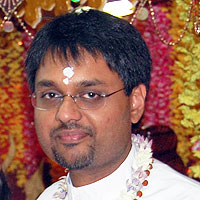What is the definition of Morality?
Morality refers to moral conduct or standards, that is, looking at how good or bad our conduct is (the manner in which one behaves).
Stories Based on Morality taken from the Ramayana
The historic period or Yuga in which Rama lived is known as Treta Yuga, when dharma (righteousness) and moral standards of people were generally of a high order. In subsequent yugas (Dwapar Yuga when the story of Mahabharata took place and the present Kali yuga in which we live), dharma and morality keep steadily declining. Thus the Ramayana, whenever read, gives us a great insight to the very high moral and ethical standards of yore; at times of mental turmoil, we get enlightenment by reading the Ramayana.
Relationship between Dharma, Artha, Kama and Moksha
Human life is consumed in chasing materialism (artha) and sense pleasures (kama). The Ramayana makes it clear that these two pursuits should never be at the cost of dharma (righteousness). In withholding dharma, both artha and kama can be and must be sacrificed. The ultimate goal of life is moksha (liberation) and it can be attained only by relinquishing artha and kama and by strictly following a life of dharma.
- The importance of fighting atrocity against women
Jatayu, the aged and once powerful bird, who noticed Ravana abducting Sita forcefully and flying with her in his vehicle towards his country Lanka, fought valiantly to obstruct Ravana and release Sita but could not succeed in its effort. The bird sacrificed its very life in such a noble effort. Before breathing its last, Jatayu managed to convey the news to Rama, who, moved to tears by the gallantry of the old bird, did its last rites and funeral, as though he was the son of the bird.
Benefits of the Practice of Morality
Morality is the gateway to religion. He who leads a moral or virtuous life attains freedom and perfection or moksha. The practice of ethics will help you to live in harmony with your neighbours, friends, your own family members, fellow beings and other people. It will confer on you lasting happiness and moksha. It will purify your heart. It will keep you ever conscious and ever clean. A moral man who follows strictly the principles of ethics and morality will enter the path of Dharma. Good conduct is the root of spiritual prosperity. It is good conduct which prolongs life and destroys evil and brings eternal happiness; therefore. develop good conduct from now.
Moral Characteristics
1. Being honest, truthful, trustworthy
2. Having integrity
3. Being caring, compassionate and benevolent
4. Doing one’s civic duty
5. Having courage
6. Being willing to sacrifice
7. Maintaining self control
8. Being just and fair
9. Being co-operative
10. Being persevering and diligent
11. Keeping promises
12. Doing no harm
13. Pursuing excellence and taking pride in work
14. Taking personal responsibility
15. Having empathy
16. Benefiting others
17. Having respect for others
18. Having patience
19. Being forgiving
20. Making peace.
Submitted by Aruna Suban, 16 years, Dharma Jyot Mandir



No2 maximus reviews
I’m gone to say to my little brother, that he should also pay a visit this web site on regular basis to get updated from most recent news.